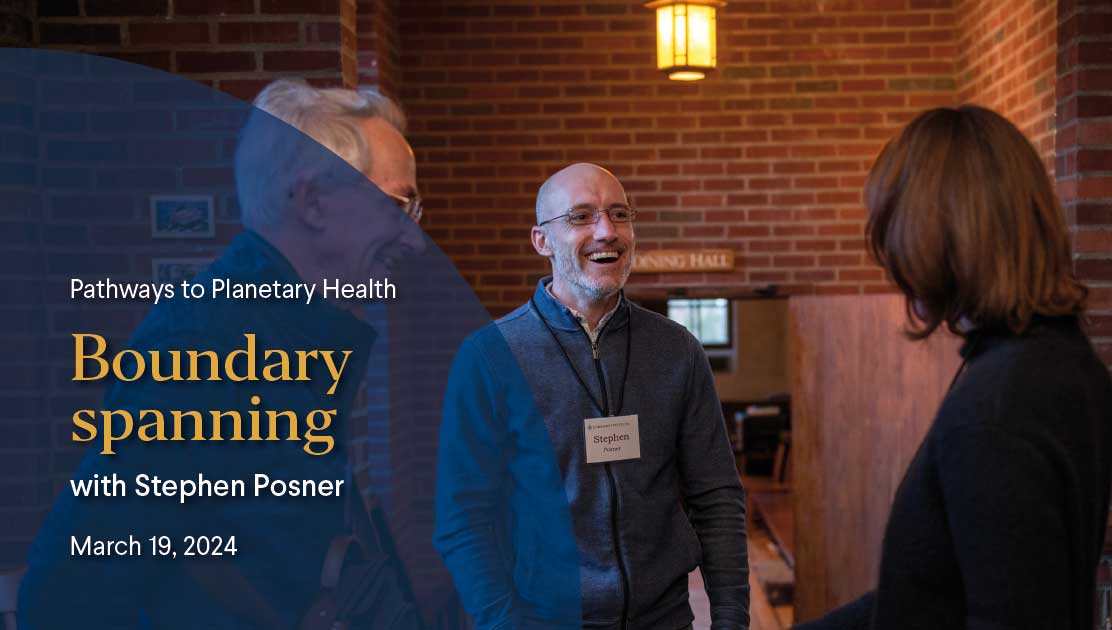Boundary Spanning
In a recent podcast episode, Stephen Posner, Director of Pathways to Planetary Health at the Garrison Institute, joined a conversation with Michael Cox, Professor of Environmental Studies at Dartmouth College in New Hampshire, USA, who studies and teaches about the commons – a broad concept that reflects a whole, integrated world and that refers to relationships among places, communities, resources, and self-organized social values and norms.
The discussion drew from decades of the study and practice of boundary spanning, a field of work focused on knowledge exchange between research and decision-making communities.
Boundary spanning is essential for society’s capacity to respond to complex challenges such as planetary health. This is especially true in today’s compartmentalized world.
“Sometimes there can be alignment [among people and perspectives], and it’s just hidden. We don’t know it until we uncover it through dialogue.”
[29:00] when describing how boundary spanning helps bridge gaps between people and perspectives.
People who work on planetary health challenges can live in very different professional cultures. This means they may speak different languages, sit in different meetings, and apply different ways of thinking from their specialized training and education.
For example, scientists focused on the effects of climate change might analyze data for a positive trend in ocean water temperatures (an upward trend), while in a parallel world policymakers discuss the negative impacts of warming water on fish. Boundary spanning is a way of bringing these people and their worldviews into relationship while creating accountability.
“Our work is about engaging in projects that help people remember interconnectedness, reveal new generative social fields as they’re emerging, and build partnerships, because doing work toward planetary health is about being in concert with others.”
[45:00] when talking about the Pathways to Planetary Health initiative as an opportunity to span boundaries.
To learn more about this field and how it has developed across sectors such as environment, health, and education, listen to the podcast here.
Additional resources:
Posner, S., Fenichel E.P., McCauley, D.J., et al. 2020. Boundary spanning among research and policy communities to address the emerging industrial revolution in the ocean. Environmental Science and Policy 104: 73-81. [PDF]
Neal, J., Posner, S., Brutzman, B. 2021. Understanding brokers, intermediaries, and boundary spanners: a multi-sectoral review of strategies, skills, and outcomes. Evidence & Policy. [PDF] This article resulted from a study commissioned by the National Academies of Science, Engineering, and Medicine.
Metamorphosis, the Garrison Institute’s daylong public forum which gathered leaders and practitioners in contemplative-based social change.
Michael’s first book, Common Boundaries: The Theory and Practice of Environmental Property, published by Agenda Publishing.
